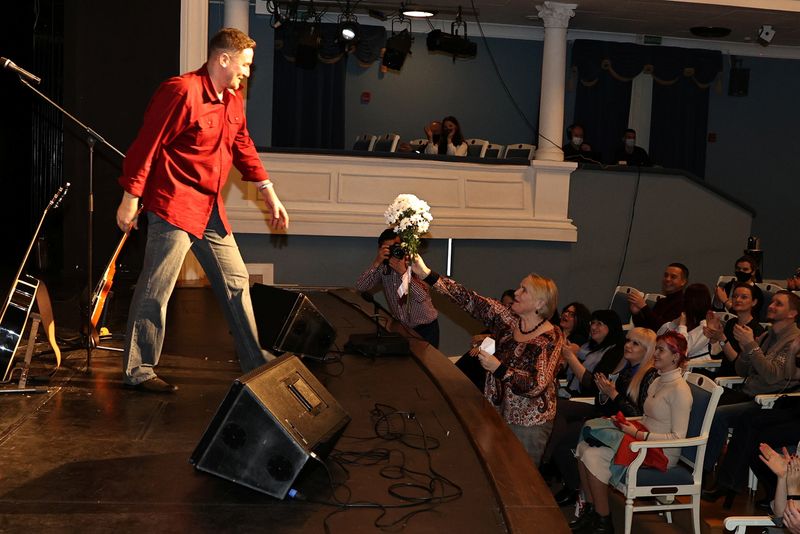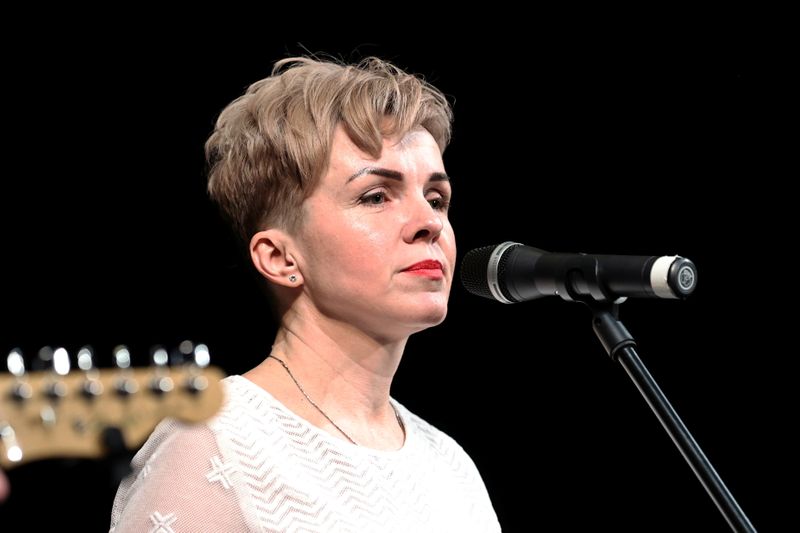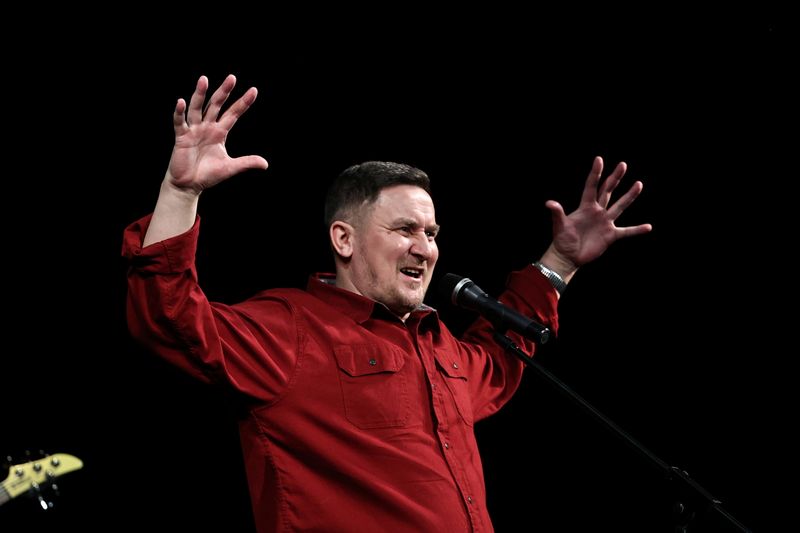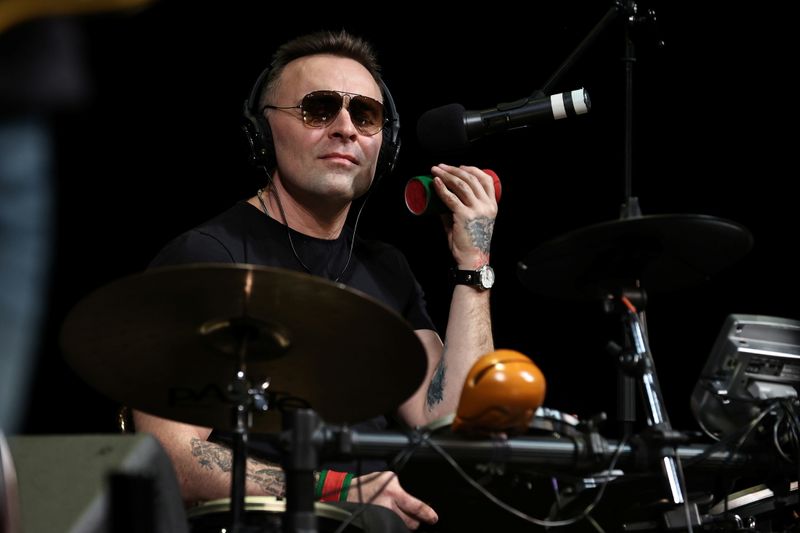MOSCOW (Reuters) – A rumbling political crisis in Belarus spilled over into the Eurovision Song Contest on Thursday, after the event’s organisers rejected the country’s entry by a band which has mocked protests against President Alexander Lukashenko.
Featuring lyrics such as “I will teach you to toe the line”, the entry had sparked a backlash from opposition figures and fuelled calls by a European Parliament lawmaker for Belarus to be suspended from the popular competition.
The entry, by Galasy ZMesta, had received 5,800 likes and more than 40,000 dislikes on the competition’s official YouTube page since Tuesday, with more than half a million views. It has now been taken down from the site.
The European Broadcasting Union rejected the song and threatened Belarus with disqualification if it did not submit a modified version of the entry or submit a new song.
“It was concluded that the song puts the non-political nature of the Contest in question,” the EBU said in a statement. “In addition, recent reactions to the proposed entry risk bringing the reputation of the ESC into disrepute.”
The band’s frontman Dmitry Butakov denied the song breached the competition’s rules.
“It is not news for me at all. It was expected, understandable,” Butakov told Reuters.
“They took the hockey world cup from us, and Eurovision is peanuts compared to that,” he added, referring to Belarus earlier being stripped of its right to host this year’s world ice hockey championships.
“I think our song is compliant. It’s them who think it is not.”
Belarus’ state broadcaster did not respond to requests for comment on the song or on opposition calls for its exclusion from Eurovision.
To critics, allowing the entry to be performed would have added legitimacy to a violent crackdown launched by Lukashenko against mass unrest that swept the country following an August election which demonstrators say was rigged to extend his 27-year rule.
The president denies electoral fraud and has accused the West of sponsoring the protests.
‘A MOCKERY’
Rights groups say more than 33,000 people have been detained in the crackdown, prompting the United Nations human rights chief to warn of a “human rights crisis” last month. The government says it is being unfairly maligned.
“This is a mockery of the people of Belarus, of everything that is happening in the country,” said singer Angelica Agurbash, who represented Belarus at Eurovision in 2005, before the EBU’s announcement.
Galasy ZMesta, a guitar, drums and tambourine band, has been an outspoken critic of the protests and called them an attempt to destroy the country.
The Eurovision contest, which takes place in Rotterdam this year, is best known for its kitsch-laden entries from around the continent. While the EBU says the event should be free from politics, it has attracted controversy in the past.
The EBU last month said it was “extremely alarmed by the intensifying of attacks on press freedom in Belarus” after two journalists were jailed for filming protests.
Karin Karlsbro, a Swedish European Parliament member, had joined Belarusian opposition figures in calling for Belarus and its state broadcaster to be excluded from Eurovision.
Whether the EBU’s actions on Thursday satisfy those demands remains to be seen.
“The state-owned TV channel is a propaganda megaphone for the dictatorship, for Lukashenko himself,” Karlsbro told Reuters.
Galasy ZMesta, which translates as “Voices of Reason” or “Voices from the grassroots”, has singled out opposition figures including Pavel Latushko, a former diplomat, in its songs.
Latushko was fired as head of the Belarusian state theatre last year. Galasy ZMesta mocked him for subsequently fleeing abroad to Poland.
Latushko told Reuters the EBU should suspend the Belarusian state broadcaster in solidarity with journalists who were harassed and jailed in the crackdown.
“Taking it away would cause (Lukashenko) serious psychological damage as well as reputational damage,” he said.
(Additional reporting by Ilze Filks in Stockholm; Writing by Matthias Williams; Editing by Andrew Osborn and Mike Collett-White)
























